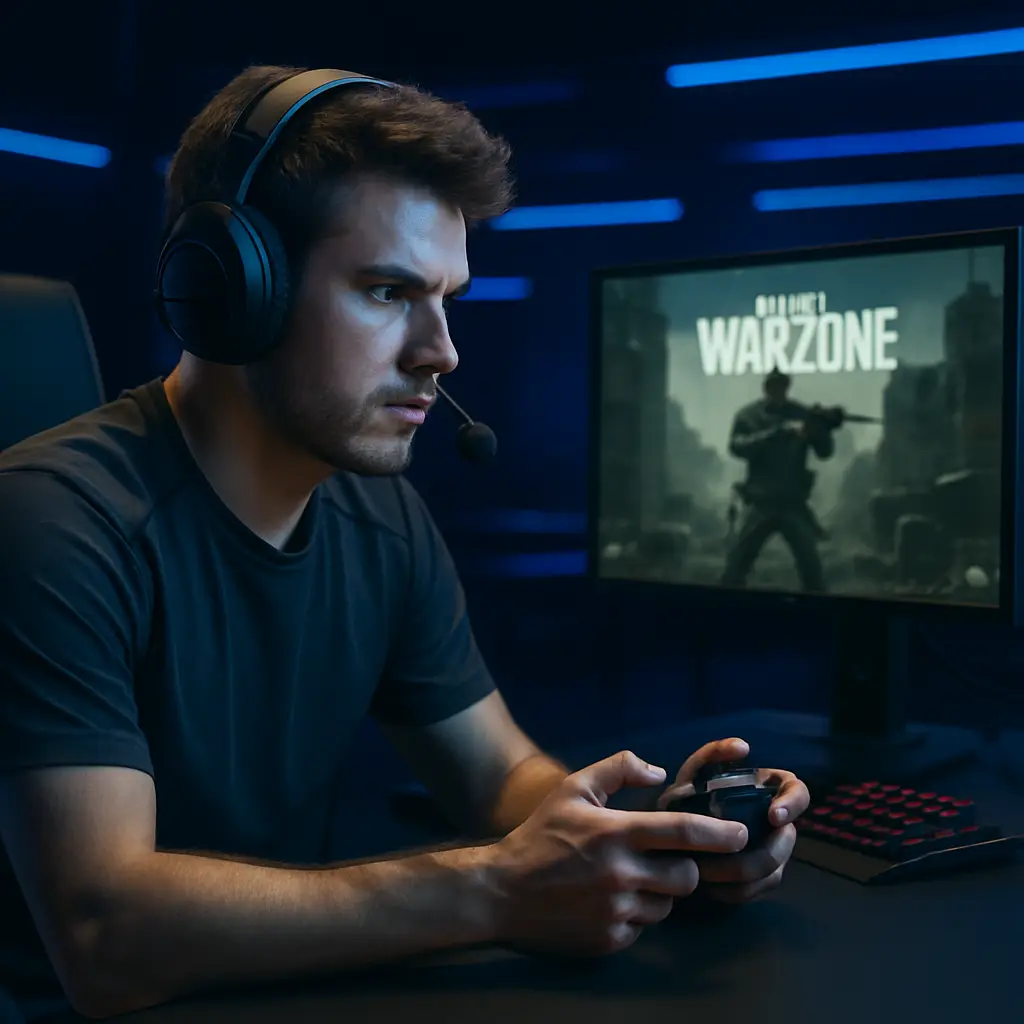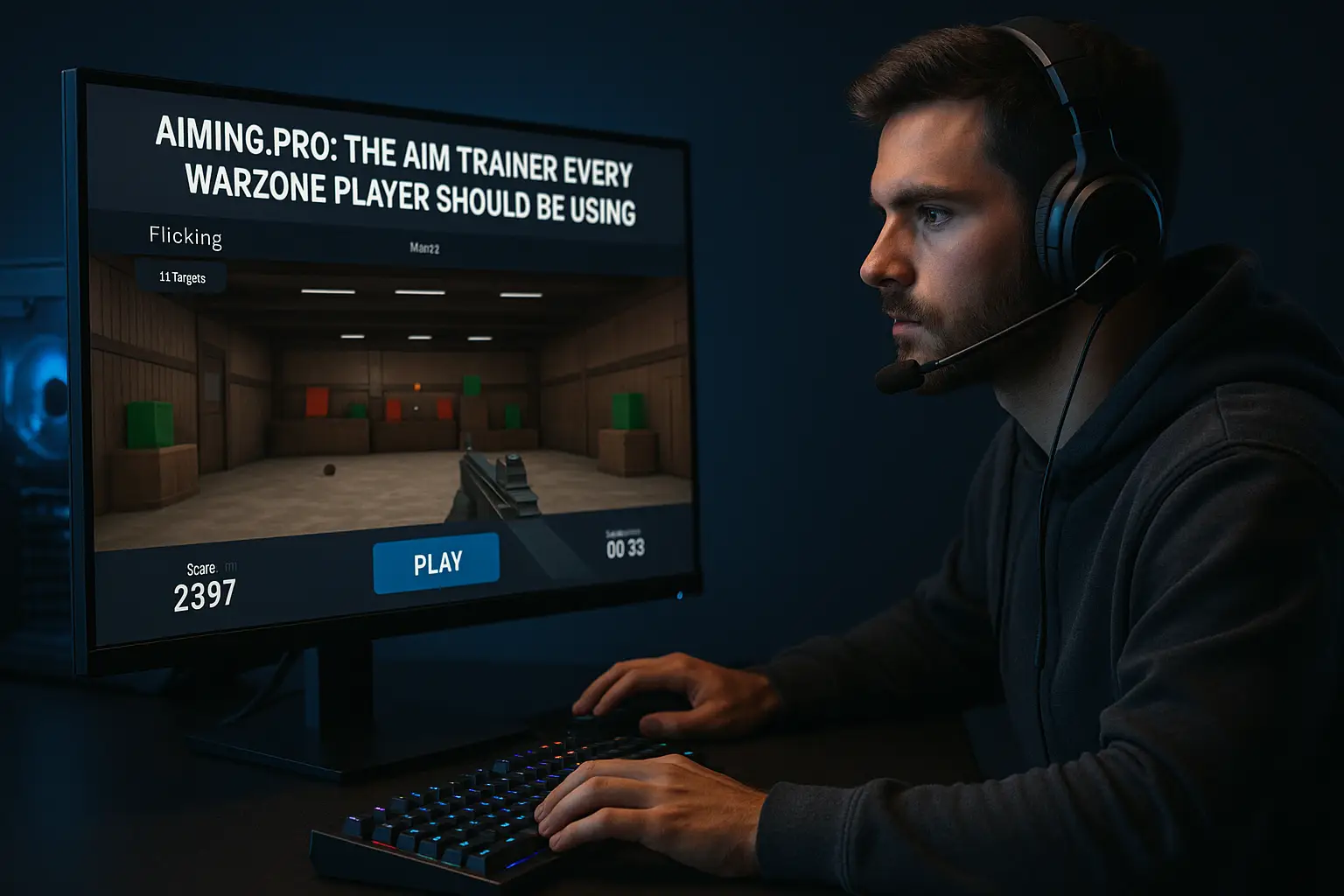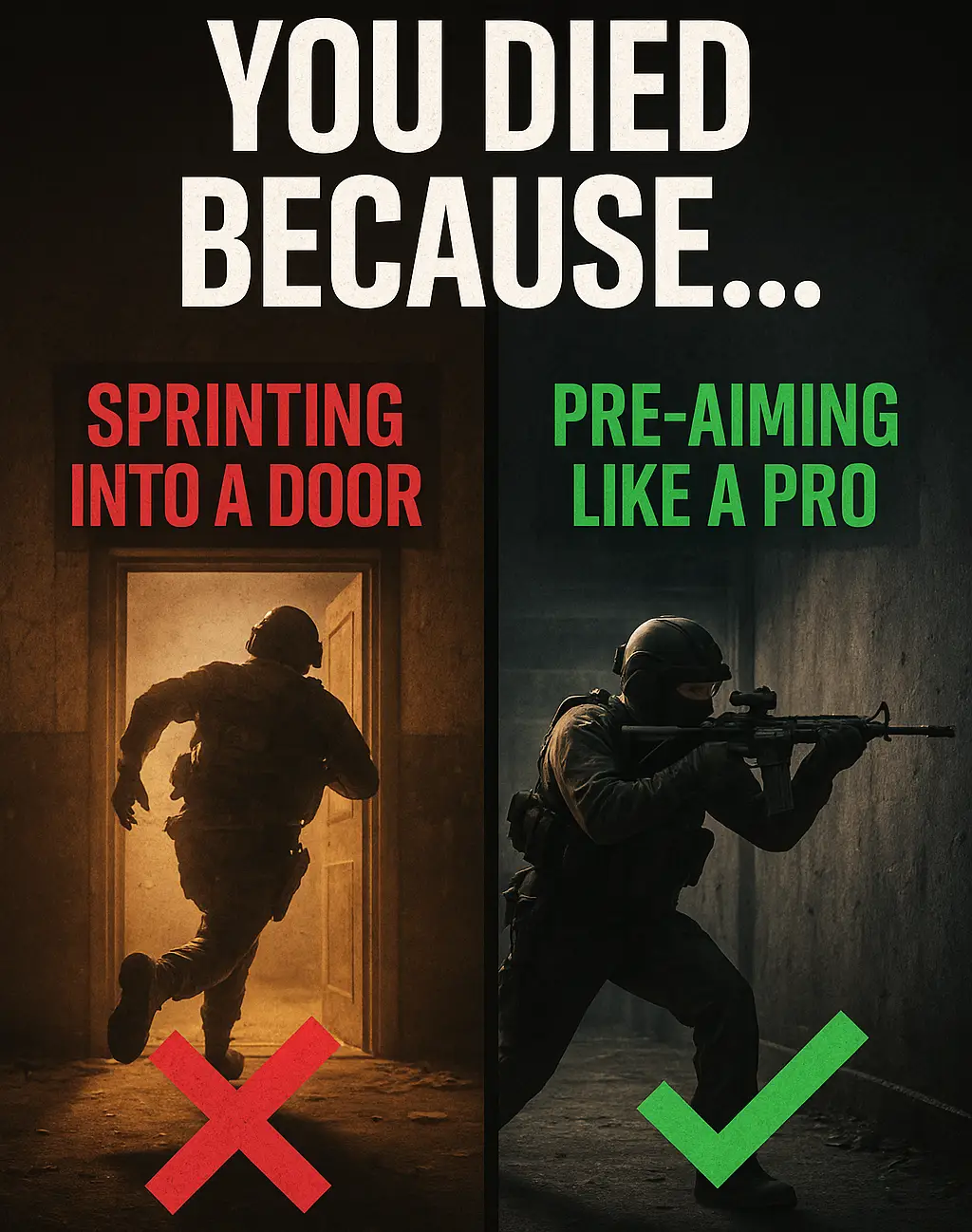
5 Tips to Master the Warzone COD Tactical Layout
Why Every Pro Player Uses the Tactical Layout in Warzone COD What Is the Tactical Layout and How Does It
Call of Duty isn’t just about fast reflexes and tactical plays—it’s about the connections forged in battle. Over time, I discovered that the real wins weren’t just on the scoreboard but also in the friendships built along the way. What started as random matchups with strangers became a loyal crew of teammates I trust, joke with, and lean on. In this post, I’ll share how gaming helped me form an online tribe and how you can do the same, one match at a time.
Call of Duty is more than just a game—it’s a digital battleground where strategy and teamwork are as important as fast reflexes. I initially turned to it for stress relief, but what I found was far beyond what I expected. My early matches introduced me to players who valued collaboration over personal kill counts. Each game became an adventure, filled with shared objectives and unexpected alliances.
I truly felt the difference during a chaotic firefight on a crowded map. I accidentally fell off a ledge and found myself in a tight spot. Rather than facing criticism, my teammates stepped up with advice and encouragement. That experience marked the start of my journey into a community focused on collective success rather than individual glory.
I’ve encountered players who stood out for their respectful and calm demeanor. Their playstyle was different—they communicated clearly and supported each other, making every match feel like a well-coordinated operation instead of a series of random encounters.
This group didn’t just rely on individual skills; they thrived on strategy and trust. This shift in mindset changed how I approached the game. I began caring more about my performance and how my actions impacted the team. It didn’t take long for the feeling of being a lone player to fade, replaced by a growing sense of belonging.
After several matches, I discovered our squad’s true strength wasn’t just in our gameplay. One evening, a teammate invited me to join a Discord channel where we could connect beyond the digital battlefield. I didn’t think much of it initially, but it was way better than I expected. The jokes, hilarious photos, comments, game check-ins, and random life updates made playing more enjoyable. Before we knew it, we weren’t just teammates—we’d become real friends.
That’s when it hit me—good gameplay isn’t just about having skills or good callouts. It’s about trusting, having each other’s backs, and genuinely caring. That’s what makes a squad strong.
There are moments in the game that have become etched in my memory. One match stands out in particular. We encountered an enemy squad that had taken a defensive position inside a building. Instead of charging in individually, our team operated like a skilled unit. We communicated through voice chat, positioned ourselves strategically, and worked together to encircle the enemy.
I took a high angle on a rooftop, viewing enemy positions, and then I went through the door on the roof while my teammates managed the front door. Together, we synchronized our moves like a well-oiled machine. This coordinated approach led to a clean and effective outcome. The enemy team was overwhelmed by our unity and strategy. That match taught me the power of collaboration.
Another instance showed the quick thinking that defined our squad. I was caught in open terrain, with enemy vehicles heading straight toward me. One of my teammates activated an in-game kill switch in a split second. The immediate explosion removed the oncoming threat and gave me enough time to reposition. Once the chaos subsided, the moment was filled with tension, relief, and a touch of humor. These opportunities to work as one solid unit made every match a learning experience and a source of genuine joy.
My experience with the Call of Duty community extended far beyond just gameplay. While team victories and well-executed strategies offered momentary satisfaction, the underlying support from my teammates made a lasting impact. I watched and learned from game veterans who generously shared their insights, and every match became an opportunity for growth. I benefited immensely from this continuous exchange of skills, tips, and encouragement.
However, the respect and loyalty that transcended the game stood out most. I learned that genuine friendships could thrive in a virtual world. We celebrated our victories, shared personal moments, and discussed life beyond the game.
Establishing and maintaining a close-knit online community requires consistent effort. Regular check-ins, whether in-game or through Discord, kept everyone connected and informed. We maintained a respectful tone and created an environment where players felt valued and heard by offering positive feedback.

Here are a few key practices that helped our squad thrive:
Consistently practicing these strategies improved our team’s performance and strengthened our bonds. Over time, I grew more confident in my abilities and our team’s capacity to support one another through every match.
A few core aspects of online team dynamics have significantly impacted my experience with Call of Duty. I learned that online communities thrive on a mix of trust, learning, and shared responsibility. I will break down these core aspects into several points that I found necessary.
The way we communicated made a big difference. Clear, concise messages during frantic moments helped prevent confusion and mistakes. Specific callouts, like naming locations or objectives, ensured everyone understood what was happening. It also helped bridge the gap when coordinating strategies mid-match.
Trust in the team was built gradually throughout many games. There were moments when I wasn’t sure if the plan was working, but I always trusted that my teammates had my back. When a teammate made a critical play, it boosted my confidence. Our mutual trust meant we took fewer unnecessary risks, relying on each other to cover our weak points.
Every match was a learning opportunity. I kept a mental note of what strategies were effective and what needed adjustment. Often, experienced players would share their insights after a game. This exchange of knowledge helped us improve collectively. Providing constructive feedback and celebrating minor improvements became natural, increasing my performance.
Challenges were inevitable in a dynamic game like Call of Duty. Every match had its difficulties, from unexpected enemy tactics to technical glitches. However, tackling these challenges together made the experience far more satisfying. I learned to see setbacks as opportunities to learn and grow, a mindset that has benefited me both in-game and in life.
Question: How did joining the community change your gaming experience?
Answer: The community provided a support system that went beyond just gameplay. It turned routine matches into opportunities for growth and mutual respect.
Question: What are the most essential traits of a good online team?
Answer: Trust, clear communication, and a willingness to learn and adapt are some traits that make a team strong.
Question: Can you improve your skills by being part of a team?
Answer: Yes, sharing tactics, watching experienced players, and getting constructive feedback all contribute to better individual and team performance.
This journey with the Call of Duty community has reshaped how I view online interactions. I entered the game looking for a way to relax and ended up with a tight-knit group of friends. The feeling of belonging, reinforced by shared struggles and victories, has grown stronger with each passing match. Every game holds memories of teamwork, trust, and unexpected lessons that extend beyond the virtual field.
The digital battles taught me that although we are spread out globally, we share common goals and challenges. Sometimes, the weight of a difficult round pushed me to play solo. Instead, a simple chat or a coordinated move from a teammate reminded me of the strength of being part of a community. My journey with Call of Duty demonstrates that online interactions can be a foundation for real connections.
Looking ahead, I am eager to expand this community further. I plan to share my experiences with other gamers who might feel lost in a sea of online battles. I want to encourage them to be open to collaboration and experience the support I have had the fortune to enjoy. The lessons learned on virtual battlefields have a lasting impact on everyday life.
This experience has also emphasized that winning isn’t the only goal. The shared laughter, the moments of intense concentration, and even the chaos of unexpected saves make the community truly remarkable. With every match, the appreciation for teamwork deepens, and each new challenge is best met with a group ready to support one another.
My journey with the Call of Duty community proves that an online game can pave the way for meaningful connections. The squad I found in those intense virtual battles remains a constant reminder of the unexpected places friendship can arise. I value our shared moments and the lessons they continue to provide as I step forward into new matches. The experience fuels my passion for teamwork and makes every game worthwhile.
Over time, I have come to appreciate the thrill of in-game victories and the ongoing glow-up of our digital interactions. Online gaming has taught me to value every small moment of connection with others. Whether the excitement after pulling off a perfectly executed strategy or the calm discussions after a hard-fought round, these moments add to a richer experience. The connections formed in the heat of battle often extend to real-life friendships, making each match feel both challenging and rewarding.
This extended interaction has shown me that gaming is more than a pastime. It is a space where individuals can open up and share parts of themselves. It has broadened my perspective on teamwork, underlining the importance of staying sharp and always being ready to support one another. Every comment, tip, and shared laugh fills our digital world with possibility, warmth, and growth. I am incredibly thankful for every challenge, every setback turned lesson, and every moment of unity that has brought us closer together.
Thanks for reading Building Friendships One Match At A Time: My Call of Duty Experience. If you liked it, read How to Deal With Toxic Players in FPS Games.
Ask Questions: If you have any questions, leave them in the comments below.
Happy Gaming!

Why Every Pro Player Uses the Tactical Layout in Warzone COD What Is the Tactical Layout and How Does It

Best Aim Trainer for Warzone (Aiming.pro): Why Every Player Should Be Using It If you’re looking for the Best Aim

Warzone Sprint-to-Fire Delay Explained (Top 5 Secrets to Win More Fights in 2025) Field Brief: Understanding Warzone Sprint-to-Fire Delay “The